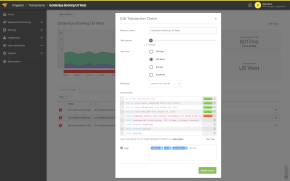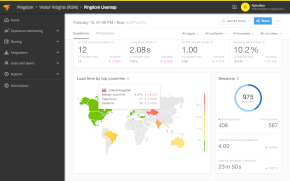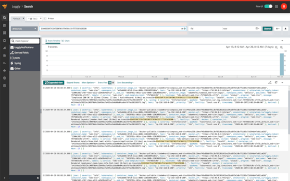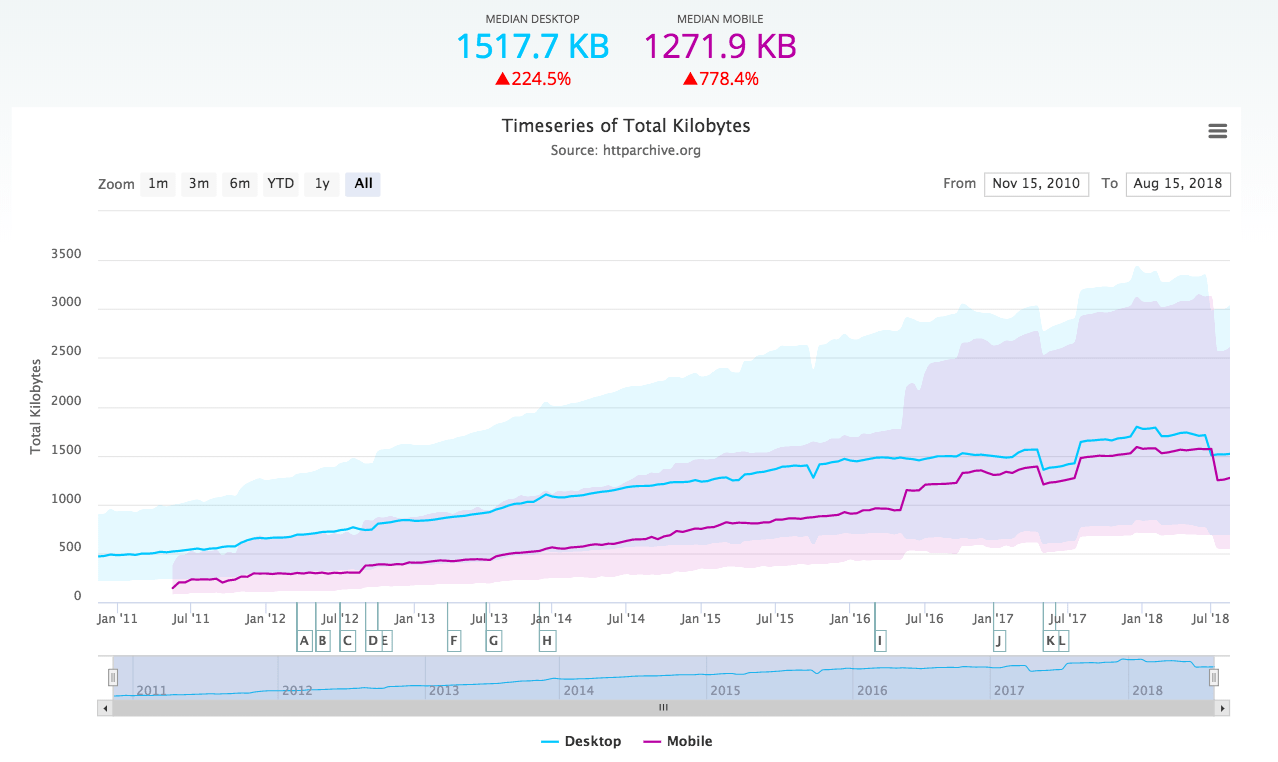 At the recent F8 conference Facebook revealed that they now have 800 million active users. Europe, with Russia included, has a population of 727 million. We now have a social network that is so large that it could fill up a major world region with people and still have some to spare (this “spare” being twice the size of Canada’s entire population).
At the recent F8 conference Facebook revealed that they now have 800 million active users. Europe, with Russia included, has a population of 727 million. We now have a social network that is so large that it could fill up a major world region with people and still have some to spare (this “spare” being twice the size of Canada’s entire population).
Another cool comparison is that Facebook now has as many users as the entire Internet did back in 2004, the year Facebook was founded.
For fun, here are some other size comparisons you can make.
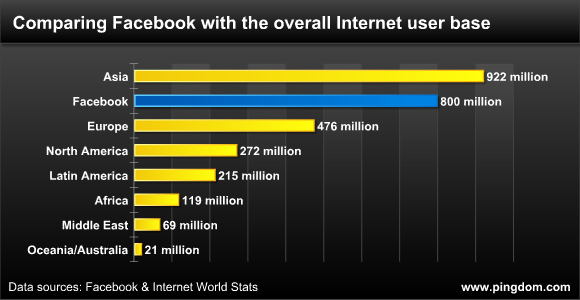
The size of Facebook’s active user base is…
- 38% of the entire current Internet population
- 87% of the Internet population of Asia
- 168% of the Internet population of Europe
- 294% of the Internet population of North America
- 370% of the Internet population of Latin America
- 674% of the Internet population of Africa
- 1,167% of the Internet population of the Middle East
- 3,757% of the Internet population of Oceania / Australia
And comparing it with the entire population of a few selected countries, we get this:
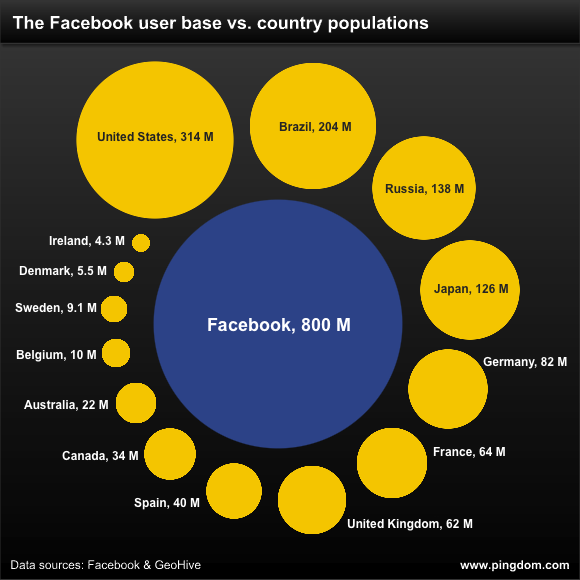
As a companion to the visual above, here you have the actual size relationships:
Facebook’s active user base is…
- 2.5x the population of the United States
- 3.9x the population of Brazil
- 5.8x the population of Russia
- 6.3x the population of Japan
- 9.7x the population of Germany
- 12.4x the population of France
- 13x the population of the United Kingdom
- 13.8x the population of Italy
- 19.7x the population of Spain
- 23.5x the population of Canada
- 36.6x the population of Australia
- 76.7x the population of Belgium
- 88x the population of Sweden
- 144.6x the population of Denmark
- 185.7x the population of Ireland
- Only India and China have populations larger than Facebook.
Note that the second chart compares entire populations, not just Internet populations (Internet users).
These numbers are pretty mind-boggling. Where will it all end? There’s still plenty of room left for Facebook to grow, but how massive can it get before it grinds to a halt?
Data sources: Population data from GeoHive. Internet user numbers from Internet World Stats.
But wait, there’s more! If you liked this post, check out this chart showing Facebook’s growth through the years, put into perspective by country populations, Internet stats, etc.: Facebook’s ginormous size put into context
